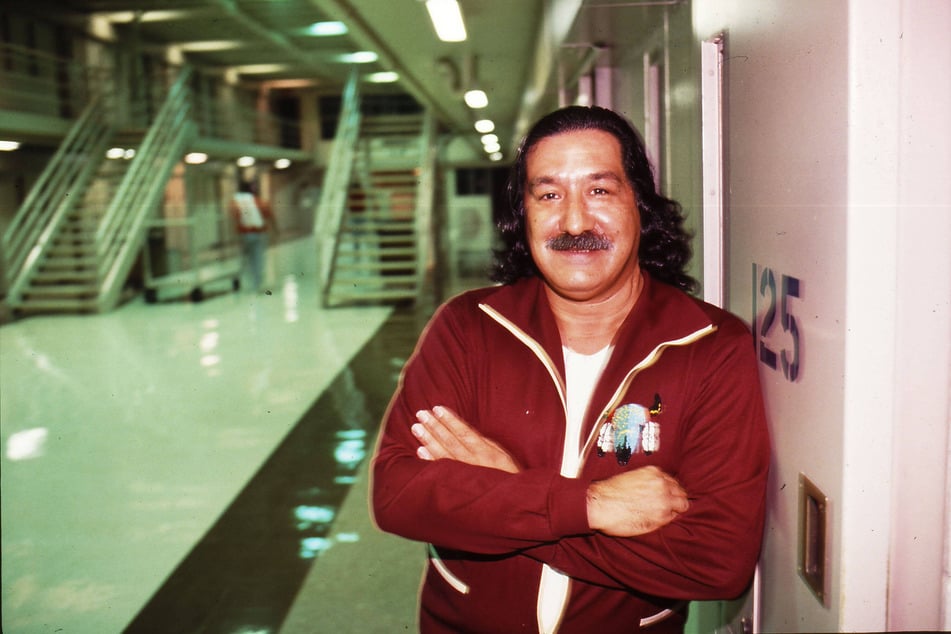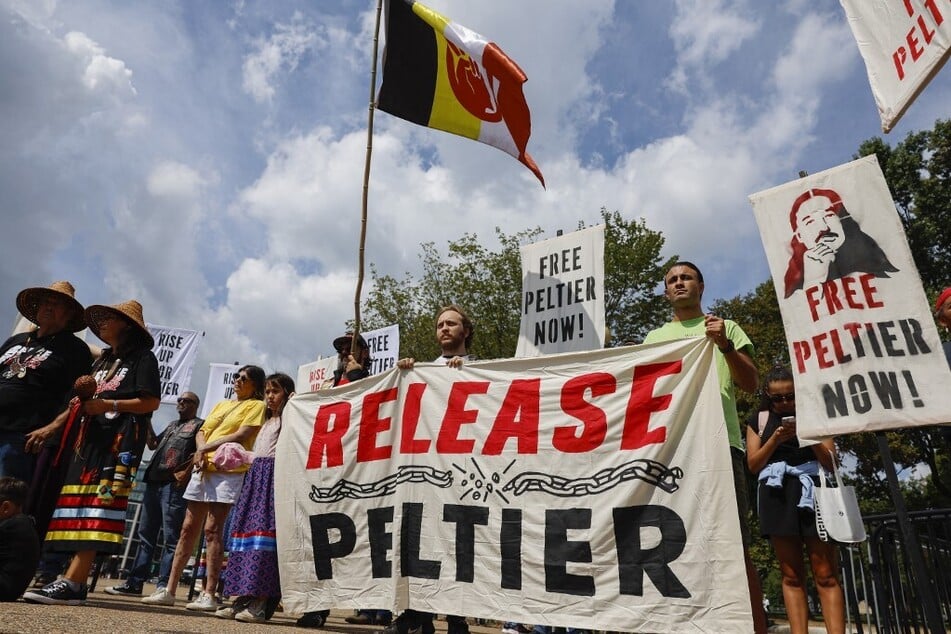Leonard Peltier, Indigenous freedom fighter, gets parole hearing in last-ditch bid for release
Coleman, Florida - Imprisoned Indigenous freedom fighter Leonard Peltier had a high-stakes parole hearing on Monday after nearly five decades behind bars.

At 79 years old, Peltier had his first parole hearing in 15 years in what many see as his last chance for release in his lifetime.
The Turtle Mountain Band of Chippewa member and American Indian Movement icon was convicted in the 1975 killings of two FBI agents on the Pine Ridge Indian Reservation. He has been locked up in a maximum-security prison for the last 48 years – steadfastly maintaining his innocence during that time.
"Throughout the years, Peltier has never accepted responsibility or shown remorse," FBI Director Christopher Wray wrote in a June 7 letter to acting US Parole Commission Chair Patricia Cushwa.
"He is wholly unfit for parole," Wray claimed, calling him a "remorseless killer."
But many Indigenous communities, human rights organizations, and legal experts disagree with the FBI's continued opposition to Peltier's release.
"Given the ongoing, unresolved concerns about the fairness of Leonard Peltier’s incarceration, that he has spent nearly 50 years in prison, his age, and ongoing and chronic health issues, granting parole on humanitarian grounds in this case is not only timely but a necessary measure in the interests of both justice and mercy," Amnesty International's Executive Director Paul O'Brien argued in a letter to the US Parole Commission.
Peltier's struggle for freedom has also gained support from Nelson Mandela, Coretta Scott King, Pope Francis, the United Nations Working Group on Arbitrary Detention, and even the top prosecutor in his case, former US Attorney James Reynolds.
Leonard Peltier's dubious murder conviction

The 1975 Pine Ridge shootout resulted in the deaths of FBI special agents Jack Coler and Ronald Williams at the Oglala Sioux Indian Reservation, though it has never been proven who pulled the trigger.
The killing of an Indigenous man, Joseph Stuntz, during the shootout was never investigated, nor have any charges ever been issued.
Tensions had erupted two years prior, when around 200 Oglala Lakota people and members of the American Indian Movement occupied the town of Wounded Knee on the reservation.
The federal government responded by setting up roadblocks and cutting off access to electricity, food, and water in a 71-day siege.
The Wounded Knee Occupation is widely regarded as a powerful symbol of Indigenous resistance to US colonialism and white supremacy.
Peltier, who joined AIM in 1972 to fight back against Indigenous oppression and considers himself a political prisoner, was ultimately sentenced to two terms of life imprisonment after he was convicted of Coler and Williams' killings. Records suggest the FBI coerced witnesses and excluded and falsified critical evidence in the 1977 murder trial, deepening doubts about the fairness of the verdict.
Over the last year, lawmakers on both sides of the aisle have come forward urging Peltier's release.
President Joe Biden has the authority to grant clemency to Peltier without congressional approval, but has so far ignored demands that he do so.
Cover photo: IMAGO / ZUMA Press